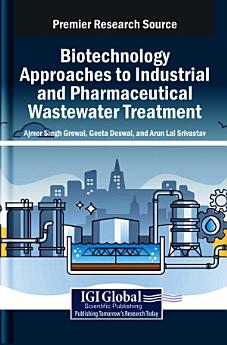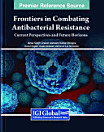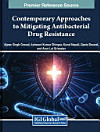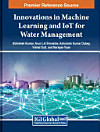Biotechnology Approaches to Industrial and Pharmaceutical Wastewater Treatment
About this ebook
Biotechnology Approaches to Industrial and Pharmaceutical Wastewater Treatment seeks to advance the implementation and optimization of wastewater treatment technologies by discussing the integration of green chemistry principles, circular economy concepts, and eco-friendly practices in wastewater management, along with eco-friendly methods like constructed wetlands and phytoremediation. By presenting the latest developments and emerging technologies, as well as addressing challenges and providing strategies for overcoming them, the book stimulates further research and innovation in the field of wastewater treatment. Covering topics such as microbial consortia, synergistic approaches, and heavy metal, this book is an excellent resource for industry practitioners, policymakers, non-governmental organizations, professionals, researchers, scholars, academicians, and more.
About the author
Geeta Deswal is presently working as Professor (Pharmacognosy) at Guru Gobind Singh College of Pharmacy, Yamuna Nagar, Haryana (India). She has obtained PhD from M.M. Deemed to be University, Mullana, Haryana (India) in Quality Audit of Herbal Formulations in 2017. She is an expert in bioactivity-guided extraction and isolation of phytoconstituents, standardization of drugs and herbal formulations, and phytochemical screening of medicinal plants and plant tissue culture. She is also working on the formulation and evaluation of herbal products as antimicrobial agents. She has worked on UV-Visible spectrophotometer, HPLC, Soxhlet Apparatus, Clevenger Apparatus, Sonicator, Rota evaporator, and Thin Layer Chromatography and Column Chromatography. She owns to her credit 40 publications in national and international journals of repute, 12 book chapters and 10 books. She is also a Life member of the Association of Pharmaceutical Teachers of India (APTI), the Indian Society for Technical Education (ISTE) the Indian Pharmacy Graduates Association (IPGA). She received the “Young Achiever Award” by Shree Balaji Books and Innovational Ambassador by the Innovational Cell, MHRD, AICTE, New Delhi.
Arun Lal Srivastav works as an Associate Professor at Chitkara University, Himachal Pradesh, India. He obtained Ph.D. degree from the Indian Institute of Technology (BHU), Varanasi, India. He has done post-doctoral research at National Chung Hsing University, Taiwan. He is currently involved in teaching Environmental Science, Environmental Engineering, Disaster Management, and Design Thinking to undergraduate engineering students. His research interests include Water Quality Surveillance, Climate Change, Water Treatment, River Ecosystems, Soil Health, Phytoremediation and Waste Management. He has published over 80 research papers in various prestigious journals (Elsevier, Springer Nature, IWA, Wiley, etc.), including book chapters and conference papers. He is the editor of 17 books with Elsevier, Nova, Springer, IGI Global, and Wiley. [Editor]





